







Complex dental and implant-prosthetic reconstructions present clinicians with the challenge of defining adequate vertical and horizontal relations. This is particularly crucial in cases where information about the original, natural function is lost due to tooth loss. Czytaj więcej >>
Digital procedures are becoming more and more established in dentistry and are replacing conventional processes. For some time now, the focus has been on automated morphological and occlusal design of dental restorations, including functional aspects, in addition to intraoral scanning. These developments have been and continue to be strongly supported and driven by knowledge-based processes such as AI. Czytaj więcej >>
State of the Art IOS technology, as well as a great number of digital tools and techniques, enable us to provide our patients with faster and more controlled treatment planning.
Digital Technology allows us to create virtual representations of the desired outcome of our restorations. This can be applied to many fields including Implant Dentistry, Prosthodontics and Restorative Dentistry. Czytaj więcej >>
Transition from a hopeless dentition to a fixed implant-supported full-arch reconstruction can be difficult for patients, if wearing a transitional removable denture is involved. In addition, an increased risk of trauma to bone-augmented areas and to the implant-bone interface exists when using a removable transitional complete denture during the implant healing period; such risk can compromise implant success or increase crestal bone loss around implants before the final restoration. Czytaj więcej >>
In complete denture prostheses the anterior teeth determine the esthetic and phonetic rehabilitation of the edentulous patient whereas the posterior teeth determine the functional performance of the complete dentures.
It has been from a long time established, that the functional requirement of the complete denture prostheses is a bilaterally balanced occlusion. Although research has not demonstrated that this is true, bilateral balanced occlusion is still considered the gold standard. Over the years other more simplified occlusal schemes have been introduced along with the design of posterior teeth that can be used to accommodate them. Czytaj więcej >>
Treatment planning with implants in full arch edentulous cases is always challenging in implant dentistry. Although prosthetically driven implant placement started being implemented the last 2 decades, implant placement became more accurate with the use of Digital technology and guided implant surgery. Czytaj więcej >>
This session will briefly review the objectives, as well as the evidence-based principles of the All-on-4®. Treatment Concept to restore complete edentulous and failing dentition cases, followed by the discussion of the most recent advancements that this technique has gone through. The new products developed to overcome the challenges of restoring the atrophic maxillae will also be presented, comprehending a wide range of solutions since zygomatic to short implants, along with other implant design innovations, emphasizing its importance to the success of this treatment and providing clinical examples to its application. Czytaj więcej >>